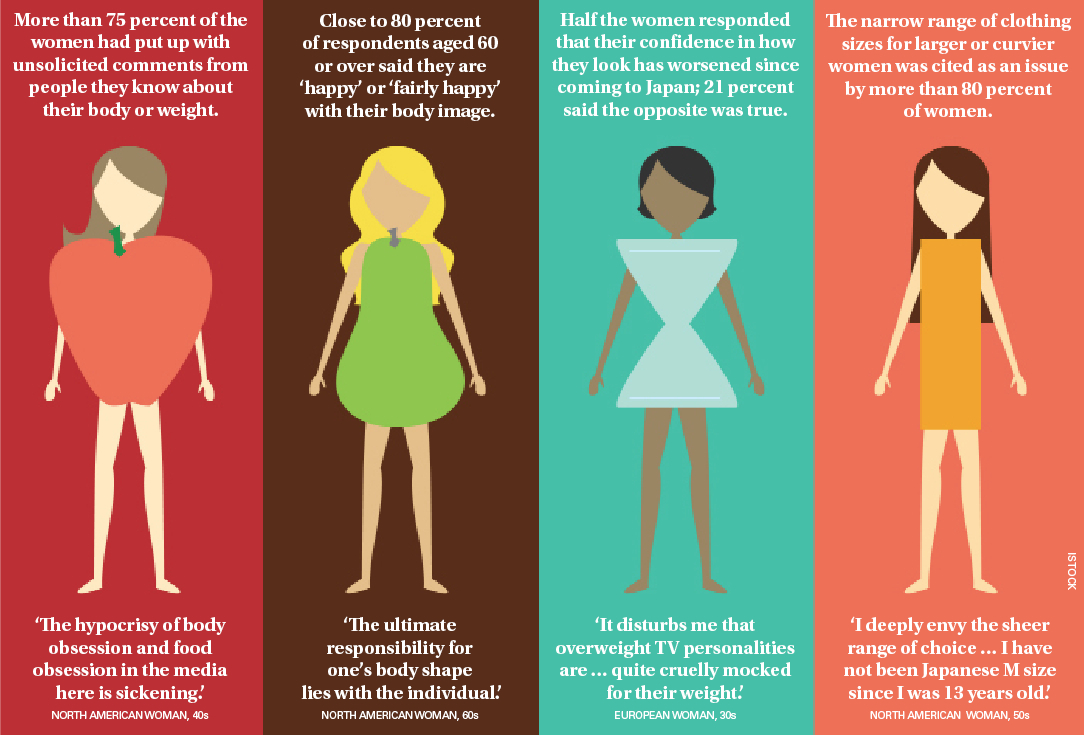Killing time at the hairdresser's the other day, I started to flick through a Japanese women's magazine. "Their world changed after they lost weight!" declared one article, depicting "before" and "after" pictures of six readers, along with each woman's height and weight. I whipped out my cellphone and pulled up the website for BMI calculation.
BMI (body mass index) is one commonly used method to check whether adults have a healthy weight for their height. A figure of 18.5 to 25 is generally considered to be in the "healthy range." Medical experts warn that BMI has its limitations — for example, those who have a lot of muscle may seem "overweight" since muscle weighs more than fat.
Among the women in the article, five had BMIs under 22.5 before they even began dieting, while their "after" BMIs ranged from 20 down to less than 17. Yet this was no magazine for image-conscious 20-somethings — it is aimed at the "around 40" age group. At a stage of life where their readers have had children and may be moving into perimenopause, why is a magazine advocating diets for women whose weight wasn't a problem in the first place?



